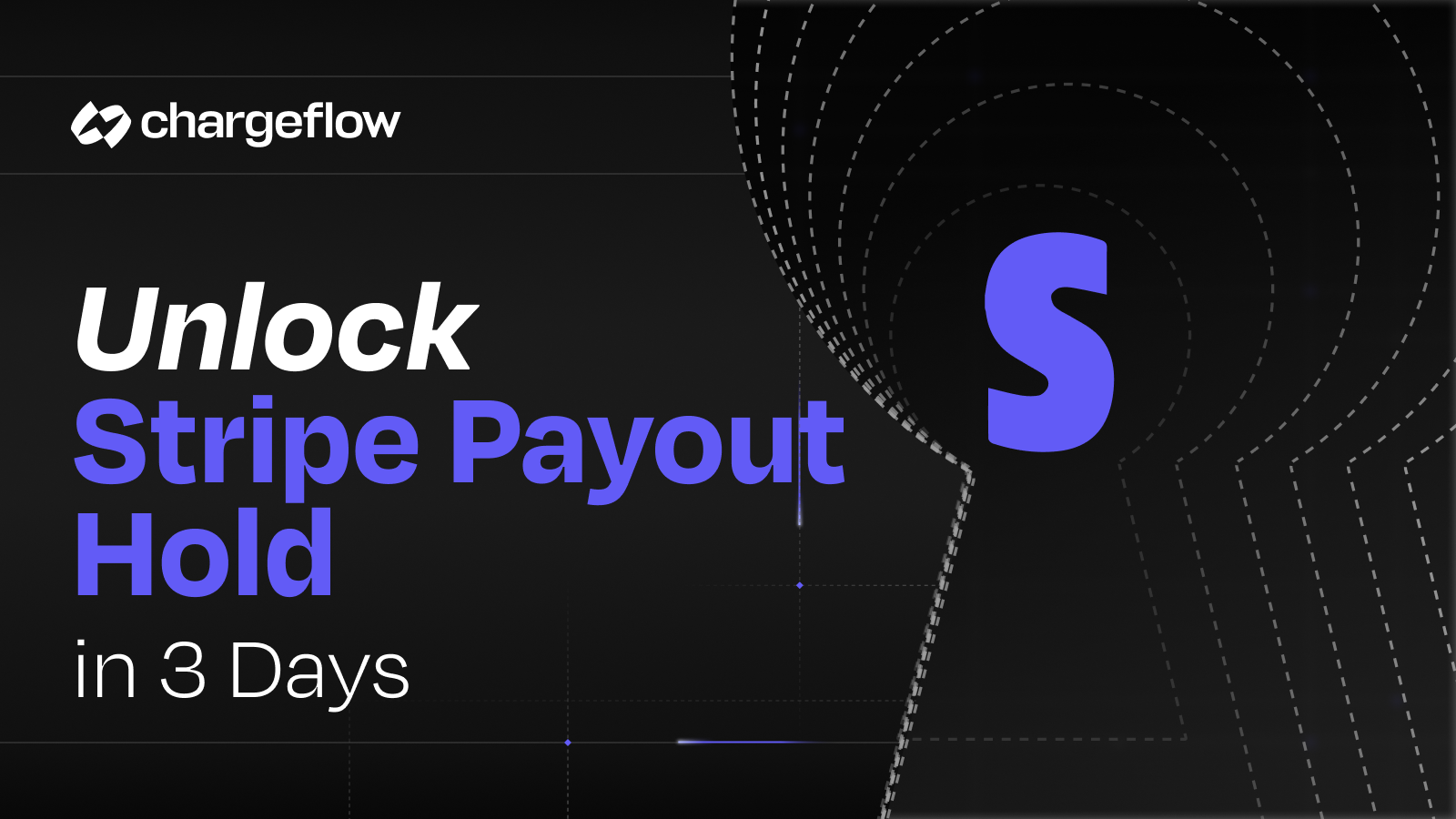Riskified vs Forter: In-Depth Comparison for eCommerce Merchants

Chargebacks?
No longer your problem.
Recover 4x more chargebacks and prevent up to 90% of incoming ones, powered by AI and a global network of 15,000 merchants.
Riskified and Forter protect online retailers from fraud while enhancing consumers' shopping experiences. But which solution is better? Find out!
There's no denying that the boom in eCommerce has led to an unprecedented fraud level. Con artists are constantly devising new ways to steal from merchants and unsuspecting consumers. This includes tactics like identity theft leading to chargeback fraud.
Mastercard says the cost of global eCommerce fraud exceeded $48 billion in 2023, up from $41 million in 2022. Hence, businesses are seeking reliable fraud prevention tools to curtail the risk.
That's where Riskified and Forter come in. These two anti-fraud solutions protect online retailers from fraud while enhancing consumers' shopping experiences. But what are the key Riskified and Forter features, and which solution best fits your needs?
Buckle up as we dissect Riskified vs Forter to give insights for informed decisions!
Riskified Features and Overview at a Glance

Riskified is a pioneering fraud management company that offers frictionless fraud prevention for enterprise-level online retail. With Riskified, retailers get considerable approval rates, instant decision-making, and comprehensive fraud protection.
The New York-based anti-fraud service provider was founded in 2012 by Eido Gal and Assaf Feldman. It completed its IPO in 2021 at a valuation of $4.3 billion.
The company says its goal is to "turn fraud management into a growth engine for online retailers.” Its pay-for-performance model, combined with cutting-edge technology, provides a flexible and cost-effective solution that drives revenue for retailers and enhances brand loyalty.
Riskified has cemented its position as one of the industry's leaders in fraud prevention. eCommerce merchants using the solution have reported improved payment processes and reduced payment risks. The company's sophisticated machine learning and data analysis identifies legitimate orders and flags potential fraud. There are over 400 million shoppers in 180+ countries on the platform. Brands like Booking.com, Shein, Prada, Gymshack, Wayfair, GoPro, and many others use Riskified.
Riskified’s Key Features
Riskified empowers banks and online retailers to create secure, frictionless payment processes for their customers while effectively detecting fraudulent transactions in an accountable way. The company's notable features include:
- Chargeback Guarantee: Riskified promises to cover fraudulent transaction costs for businesses that use their chargeback protection service.
- Fraud detection: Riskified uses AI to analyze real-time transactions, assessing hundreds of data attributes to distinguish between genuine customers and fraudsters. This helps businesses minimize false positives and wrongful declines.
- Seamless Integration: Users have observed that Riskified integrates seamlessly with eCommerce platforms and payment systems, boosting security without significant disruptions.
- Analytics and Insights: Extensive platform analytics gives insights into transaction and fraud trends.
- Custom Rules: Fraud prevention tools touch the most delicate part of a business' technology stack – the payment system. And every business has distinct needs. Riskified does a decent job of helping businesses maximize outcomes according to business needs.
- Policy Abuse Prevention: Merchants use Riskified to protect sales revenue by preventing marketing policy abuse, like promo code misuse, return scams, and reseller misuse.
It's safe to say that Riskified is a customer-centric fraud prevention solution that integrates with your existing operations to enhance or overhaul existing fraud parameters.
Riskified Pricing
Riskified's pricing structure depends on a merchant's sales volume, industry niche, and unique risk profile. Merchants do not pay set setup fees and monthly commitments. Instead, Riskified operates on a pay-as-you-go structure starting at 0.4% per transaction.
- Initial costs may rise as sales increase and some sectors might pay more than others.
- SaaS and cloud spending management platform Vertice say their analysis indicates that Riskified pricing has a relatively high 69/100 parity score, yielding a medium discount possibility.
Riskified's dynamic pricing structure avoids typical add-ons. It allows eCommerce businesses to scale seamlessly without extensive pricing burden.
Riskified’s Advantages
The fraud management service provider balances customer experience and account takeover prevention.
- Machine learning algorithms adapt to evolving fraud patterns for accurate fraud detection and revenue boosts.
- Billions of platform data inform fraud decisions with a comprehensive overview of potential risks.
- Riskified assumes chargeback liability for approved transactions turning into fraudulent chargebacks.
- Seamless workflow through streamlined integration with notable eCommerce marketplaces, payment providers, and extended tools.
- Dynamic solutions targeting various eCommerce verticals including luxury fashion, retail, digital products, travel, and athletic and outdoors.
- Scalable cloud architecture, suitable for eCommerce merchants in high-growth sectors.
Riskified’s Disadvantages
Riskified provides extensive fraud coverage. But there are reported downsides worth noting.
- Riskified's chargeback guarantee limits control over order reviews, heightening false declines.
- Riskified’s ghostly pricing structure proves more beneficial for merchants dealing in high-value goods. It may not be sustainable for fixed account operators.
- There's also been reported user difficulties in identifying non-fraudulent click-and-collect orders and improved feature requests to address transaction approval inconsistencies.
- Merchants selling niche products have observed the platform requires continuous data input to become visibly effective, which often leads to bad orders being approved.
Forter Features and Overview at a Glance

Forter prides itself as the identity intelligence for eCommerce. With over $1.5 trillion worth of eCommerce transactions and an estimated 620 million shoppers protected against fraud, Forter is undoubtedly a leader in the eCommerce fraud prevention market.
The company's real-time identity-based solution, backed by predictive modeling, offers customized fraud prevention options to consumers. Forter's Fraud Prevention Platform extension for Magento equips merchants with an enterprise-grade anti-fraud solution. This API-based extension eliminates manual review with automated, real-time approve/decline functionality. Merchants can also adjust their store's backend configuration as they see fit.
In 2023, Forter bought Israeli startup Immue to use its bot detection and mitigation features in its core platform. Forter recently strengthened its expansion to the APAC and EMEA region with the appointment of three senior executives for that region. The fraud prevention giant is trusted by Fortune 500 companies like Farfetch, Sephora, Nordstrom, Instacart, Adobe, and Priceline. It boasts a dataset of over 1.5 billion identities.
Forter’s Key Features
The Trust Platform for Digital Commerce has exciting features. It applies identity intelligence throughout the digital commerce journey. This eliminates fraud and allows your business to maximize customer lifetime value. The unique features including:
- An All-in-One Anti-fraud Solution: Forter gives eCommerce and financial entities a robust solution for safeguarding their operations from various fraud types.
- Abuse Prevention: Prompt "approve or decline" transaction decisioning improves the shopping experience and protects revenue by stopping abuse at the source.
- Payment Optimization: It fosters trust in payment environments, enhances conversion rates, minimizes chargeback liability, and ensures PSD2 compliance.
- Identity Protection: Forter circumvents fraud early in the customer journey by thwarting account takeover and blocking fake account creation to protect integrity and boost loyalty.
- Chargeback Guarantee: Forter takes responsibility for approved transactions that result in a chargeback due to fraud.
- Rich Data and Analytics: The Forter decision dashboard provides extensive insights into transactions, fraud cases, customer journeys, business trends, and key performance indicators.
Forter Element is said to help Payment Service Providers minimize false positives and chargebacks by up to 90%, with an optional guarantee. It also ensures easy onboarding, insightful reporting, and optimized 3DS authorizations for seamless transactions.
Forter’s Pricing
Pricing is vital for merchants when deciding on a fraud solution to onboard. Forter argues its custom pricing structure helps you as it showcases a clear ROI and unlocks revenue growth.
- Transaction-based pricing model means fees vary depending on transaction volume and risk profile.
- Saas spending management platform Vertice reports that Forter's pricing has a parity score of 59/100, indicating it is slightly less consistent than Riskified's.
Based on the reviews and testimonials we've analyzed, Forter's pricing strategy appears to benefit lower-tier brands the most.
Forter’s Advantages
Digital commerce is built on trust, and Forter wants to be the top-of-mind platform for identity intelligence throughout the eCommerce lifecycle.
- Forter offers easy integration into existing systems. It streamlines onboarding processes for merchants.
- Advanced machine learning algorithms assess various data points to optimally track and circumvent potential fraud.
- Real-time decision-making capabilities enable automatic acceptance, rejection, or review of transactions based on fraud risk scores.
- Chargeback guarantee, while incomparable to automated chargeback protection, provides some revenue protection incentive to merchants.
- Extensive platform analytics and reporting help businesses get a clear view of what in the world is going on with transactions.
- Forter’s user experience and customer service is also not lacking.
Forter’s Disadvantages
Like Riskified, Forter has some downsides you should consider when making your decision.
- Forter’s pricing strategy might make the platform unsuitable for all businesses.
- While Forter boasts a 72% chargeback fraud reduction rate and a 46% decline in false declines, automated chargeback management still yields superior results.
- Some users have also expressed interest in accessing the underlying data used to inform Forter’s report and fraud parameters.
Riskified vs Forter: The Key Differences
Riskified and Forter offer similar fraud prevention services to eCommerce merchants. Both platforms have clear user benefits that make them appealing. However, there are notable distinctions between Riskified and Forter. Let’s review these differences.
Pricing Structure
Riskified and Forter use a performance-based pricing model. A merchant's cost depends on indices like the value of their approved transactions.
The slight difference is that Riskified has a higher price parity score than Forter according to Vertice. That suggests Riskified's pricing may be more advantageous to merchants dealing in high-value goods.
Chargeback and Fraud Prevention
While Riskified and Forter offer a chargeback guarantee and fraud protection, there are slight differences in the policy application and outcome.
Riskified:
- Offers 100% chargeback guarantee (which explains the reported high rate of false decline).
- Fraud prevention performance varies across sectors.
Forter:
- Offers a 90-day performance guarantee.
- Boasts a 72% overall reduction in chargeback rates and a 46% decrease in false decline.

Ease of Integration Onboarding
Riskified and Forter integrate with major eCommerce platforms. However, merchants have reported that Riskified requires more initial setup time to customize than Forter.
Analytics and Reporting
Both platforms provide detailed insights into transaction trends and fraud patterns. However, some merchants believe they get more depth from Forter's analytics and reports.
Riskified vs Forter: The Final Verdict
Grifters pose a critical challenge to the entire eCommerce ecosystem. From all indications, this threat isn't going away anytime soon. Platforms like Riskified and Forter play crucial roles in minimizing the impact. They use intelligent systems to analyze transaction-related data and help sellers avert vulnerabilities like account takeover fraud.
Now that we've covered the core features, benefits, and inefficiencies, here is our verdict on Riskified vs Forter:
When to Choose Riskified
- eCommerce merchants in the high-growth sector: Riskified’s 100% chargeback guarantee can benefit merchants in the luxury goods vertical.
- You sell high-value merchandise: Available data suggests Riskified's pricing may prove more advantageous for high-value merchandise vendors.
- You manually process chargebacks: Your risk exposure is limited as Riskified will refund you for transactions that result in fraud chargebacks. But as we’ve already noted, this is the reason for the reported uptick in false decline.
When to Choose Forter
- New eCommerce business owner: Forter requires less setup work than Forter. Some vendors also believe they get more insight from Forter's analytics and reports.
- You need more efficient fraud prevention: High-capacity SMEs will find great value in Forter, especially since the company does a better job in minimizing false declines.
How Chargeflow Mitigates Payment Risk for eCommerce
Chargeflow is the automated chargeback prevention and recovery solution for eCommerce. Chargeflow uses machine learning and data analysis to identify and categorize chargebacks, stopping friendly fraud before they happen. The platform provides unbelievably extensive insights and reporting tools to track chargeback trends. You have absolute control in making the best decision for your business. Regarding dispute recoverability, Chargeflow outpaces counterparts by far, as illustrated in this case study published by Stripe!
If you wish to recover false and fraudulent chargebacks without lifting a finger, then Chargeflow is your best bet. You will quickly improve your dispute win rate, enhance your user experience, and buy back more time to focus on core operations. The clean user experience and success-based pricing are a bonus, making Chargeflow a valuable resource for businesses looking to enhance chargeback management processes.

Chargebacks?
No longer your problem.
Recover 4x more chargebacks and prevent up to 90% of incoming ones, powered by AI and a global network of 15,000 merchants.






























.png)








